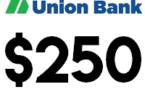Over the past number of months, the feds have raised interest rates to levels we haven’t seen in many years. Now, it’s possible to earn real money when depositing funds in a high yield savings account or CD.
In this post I wanted to quickly recap a few options of where to park cash for tax savings optimization in place of the traditional savings account. Please add your own thoughts and suggestions in the comments below.
- U.S. Treasury bills are exempt from state and local taxes. (We wrote about using Treasuries in place of a savings account in this post.) Depending on location, you might save 10% or more by purchasing treasuries instead of traditional savings account. For example, earning 4.50% from treasuries can potentially be more worthwhile than earning 4.70% in a traditional savings account.
- There are many federal money market funds you can buy within a brokerage account which are comprised partially or fully of U.S. Treasuries. Whatever component of the fund is from U.S. Treasuries is exempt from state and local taxes.
- Note, these tax savings don’t get computed automatically. Be sure your accountant calculates the savings. If you’re using a tax software, be sure to input the savings.
- We wrote more about these funds and some examples in this post.
- I Bonds are also U.S. Treasuries and are exempt from state and local taxes. These have volume limitations and don’t run fully in concert with regular interest rates, but I thought it worth mentioning. I Bonds also have the advantage of being taxed in the year you break the bond, so you can tax plan and choose the right year you want to cash out and realize the income. We wrote about buying I Bonds a number of times in the past.
- Municipal bonds are exempt from federal taxes. Municipal bond funds make it easy to buy these.
- We wrote about these briefly in this post.
- For most people, the exemption from federal taxes far exceeds the benefit from state and local tax exemption.
- Moverover, many states exempt their own state’s municipal bonds from state taxes. Thus, one can potentially have earnings which are fully tax-exempt.
- Important note, municipal bond funds often earn less than federal money market funds and the tax savings it might not be worth it, depending on your tax bracket and rates.
- Also note, these funds are usually not as steady as federal money market funds which invest heavily in things like U.S. treasury bills. There is often fluctuations in the value of the actual fund making it different from a simple ‘interest rate’ play and something closer to an investment. Still some might consider it for the tax savings or as part of a broader investment strategy.
- Finally, as noted above, these tax savings don’t get computed automatically. Be sure your accountant calculates the savings. If you’re using a tax software, be sure to input the savings.
A while back we recommended CFG Bank money market account as the best simple high yield savings account (and there are a few similar accounts that are just as good). Personally, I’ve been using Vanguard’s default federal money market fund (VMFXX) for my cash since it’s been tracking close to the top rates from savings accounts. I’m now switching over my funds to VUSXX for the additional state tax savings since that fund invest the large majority in U.S. Treasuries which are exempt from state taxes. (See this pdf for exact percentages in 2022.) Fidelity also has similar funds (SPAXX, FDLXX) – those funds are earning a bit less, probably due to higher expense ratios.





